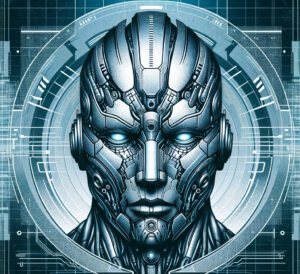Artificial Intelligence (AI) is rapidly transforming every facet of our lives and industries, promising to influence humanity in ways we’re only beginning to understand. With 44% of companies planning significant investments in AI, the future of AI is poised to revolutionize how we live, work, and interact with the world around us. From driving technological advancements in big data, robotics, and the Internet of Things (IoT) to powering generative AI tools like ChatGPT and AI art generators, AI’s role as a technological innovator is undeniable.
The Future of AI
Artificial Intelligence (AI) is not just a futuristic concept; it’s a present-day reality that’s changing the landscape of nearly every industry. The acceleration of AI innovations is shaping the future of humanity, influencing sectors such as healthcare, education, manufacturing, and transportation. AI’s ability to process vast amounts of data and optimize decision-making processes makes it a key player in emerging technologies and a catalyst for future advancements.
The journey of AI, from its early experiments in the 1950s to its current role in sequencing RNA for vaccines and modeling human speech, showcases its evolving capabilities in learning, perception, reasoning, and generalization. This evolution highlights AI’s potential to remain at the forefront of technological innovation for the foreseeable future.
Industries across the board are being transformed by AI. In transportation, AI is leading to the development of self-driving cars and AI travel planners. Manufacturing benefits from AI-enabled robotics, improving assembly processes and predictive maintenance. Healthcare sees AI enhancing disease diagnosis, drug discovery, and patient monitoring through virtual nursing assistants. Education is being personalized through AI’s machine learning and natural language processing, tailoring learning experiences to individual student needs.
Moreover, AI’s impact on media and customer service illustrates its versatility, from automating news stories to powering chatbots that provide enhanced customer interactions. However, as AI continues to advance, it also raises important questions about job displacement, privacy risks, and ethical considerations. The potential for AI to automate jobs highlights the need for re-skilling and adapting to a rapidly changing job market.
Why the future of AI matters: AI’s transformative power is reshaping the world, presenting both opportunities and challenges. Its ability to improve efficiency, personalize experiences, and solve complex problems is balanced by concerns over privacy, ethical use, and the future of employment. Understanding AI’s trajectory will be crucial for leveraging its benefits while mitigating its risks.
Potential Implications: The future of AI holds promise for addressing critical global issues like sustainability and healthcare but also requires careful consideration of its societal impacts. As AI technologies become more integrated into our lives, the need for clear ethical guidelines, robust privacy protections, and ongoing dialogue about AI’s role in society becomes increasingly important.
Source: Built In
